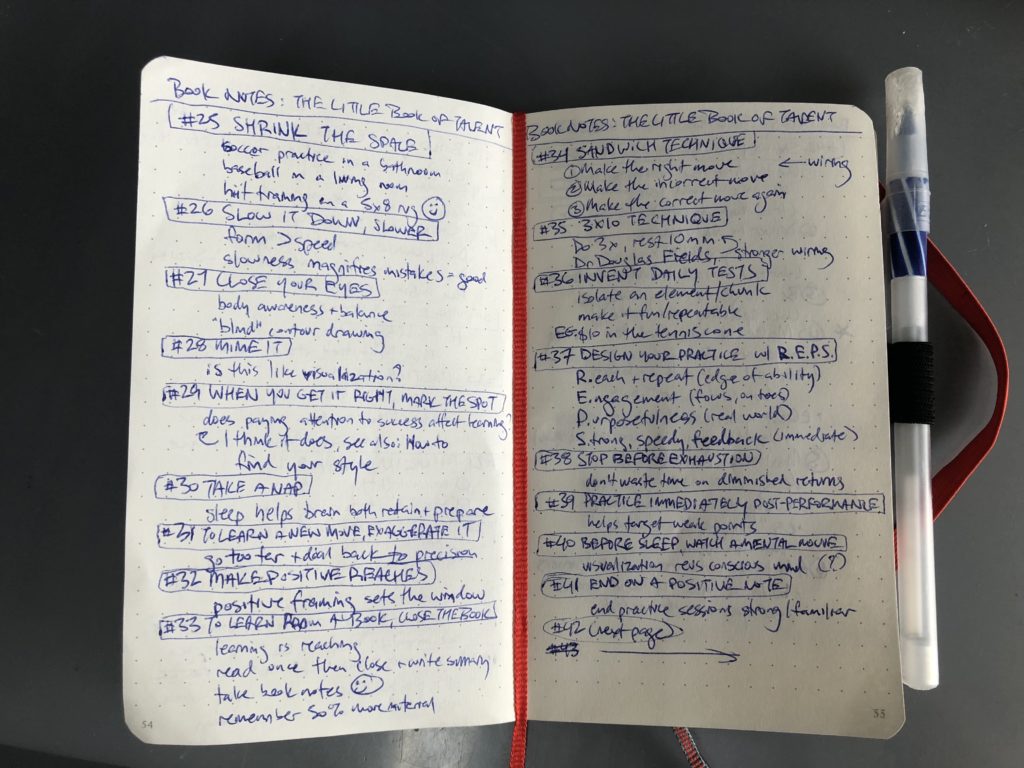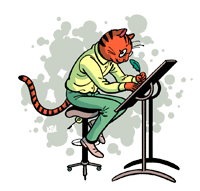
Hey all, Marc here again with another book I loved. Like many books I love, especially around talent and mastery, this one is full of stuff you can put into action and DO.
I have a passion for learning, and learning about learning helps me be better at all the things I do from fatherhood to teaching to making stuff.
I apply this all over the place, so it’s easy to see why I enjoy it. I’m a teacher and a doer, and knowing how humans get better at things helps me focus my efforts at mastery of both teaching and doing. Understanding why we learn how we do keeps me mindful of when I’m putting in good efforts, and just helps me get better and see improvement in all aspects of my career.
What I find so interesting is that the process for learning new skills is so similar across disciplines. Coding, fathering, drawing, painting, marketing, selling, writing; the process of getting good at these things has felt so similar to me. So I am absolutely loving all the research that is now available about why they actually are similar. There are many books out now that reference the research of Anders Ericsson (and his book Peak is on my todo for book notes) as well as the methods used by the modern masters of cracking the talent code. From Suzuki, famous for using language learning to teach music, to László Polgár, famous for raising two of his daughters to be widely considered some of if not the best chess players of all time, defying common ideas about that women even being capable of playing, we now have the understanding to progress with strong intent.
There is a formula for improving at any skill.
Daniel Coyle has written out this formula in an easy-to-follow 52 steps to becoming an expert. It’s not easy. There’s not “one weird trick,” there’s 52, and they’re not weird, they makes tons of sense, and they take time and repetition.
What you end up with at the end of the book is a sense of excitement and possibility. You can actually do this. Gladwell popularized the 10,000 hour idea, but that’s daunting. What Coyle does is show you how to do that in minute-sized chunks. He makes it achievable.
So if you’re interested in taking steps towards your own mastery, then take step one and get this book.
BUY THE BOOK HERE: THE LITTLE BOOK OF TALENT
My materials list:
Process and materials are two things I love. I try out a LOT of options. I got deep into Bullet Journaling for a while and over time have culled out anything unnecessary for my own productivity optimization.
For my particular style of minimal/concise note taking:
- Leuchtterm 1917 notebook
I absolutely LOVE this notebook for notes and my daily lists. It’s Just perfectly pocket sized and the paper is good quality for notes or even sketching. - Leuchtterm pen loops
I find it annoying to carry a loose pen around in a pocket. This loop keeps the book and pen perfectly together and so easy to manage. - Bic Pen
I’ve tried others, I do love the Bic for ink flow and value range.
My notes:
Background on the “notes” part of my Book Notes: This is Marc, and my notes are slightly different from Lauren’s. Like Lauren, I underline, though I’m very cautious about what and how much. In high school I remember trying to re-read history books and realized that if you underline literally everything you don’t save time on the back end. So I underline absolute essentials and write my own notes in margins when I can boil down concepts as reminders. This book was different from most in that it lent very well to my list-oriented note taking. If you like the notes and want to read more about the science and examples from the book, definitely give it a shot.









